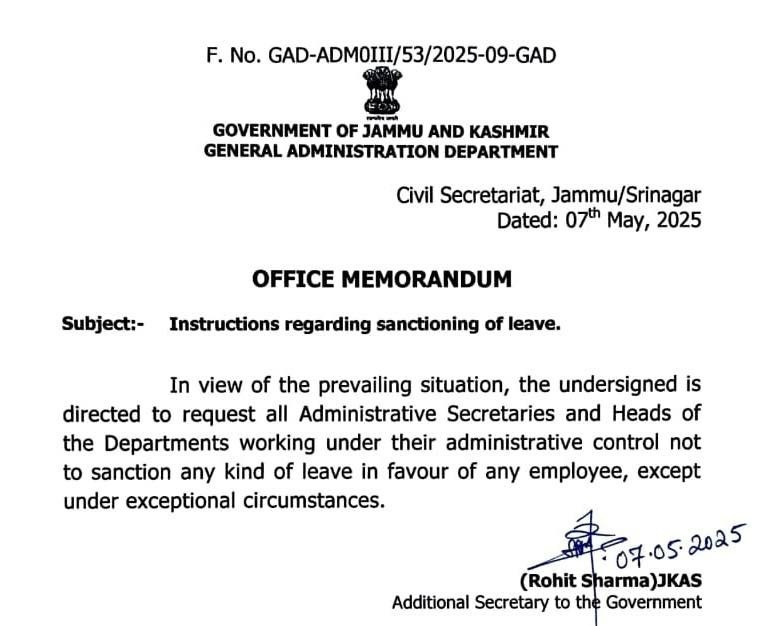
In a significant administrative move, the Jammu and Kashmir (J&K) government has suspended all leave for its employees, effective immediately, citing the prevailing situation in the region. This directive, issued by the General Administration Department (GAD), mandates that all employees report to their respective places of posting without delay. Exceptions are made only for leaves sanctioned on medical grounds or for study purposes.
Context and Rationale
The suspension of leave comes in the wake of heightened security concerns and the need to ensure the smooth conduct of upcoming municipal and panchayat elections. The government aims to maintain a full workforce to address any contingencies and to uphold public order during this critical period.
Administrative Actions and Precedents
This decision is part of a broader strategy to enforce accountability within the public administration. In recent months, the J&K government has taken stringent actions against employees found neglecting their duties or involved in misconduct. For instance, 14 government employees were suspended, and 21 others served show-cause notices for unauthorized absenteeism following surprise inspections in Poonch district . Additionally, several employees have been dismissed for alleged links to terrorist activities, with over 70 terminations reported in recent years .
Political Reactions
The suspension of leave has elicited varied responses from political leaders. While the administration justifies the move as necessary for maintaining public order, opposition parties have expressed concerns over the potential for misuse and the impact on employees’ rights. Former Chief Minister Mehbooba Mufti has called for a review of such actions, emphasizing the need for due process and fairness .
Conclusion
The J&K government’s decision to suspend leave for its employees underscores the administration’s commitment to ensuring security and effective governance during a period of heightened sensitivity. However, it also raises important questions about the balance between maintaining public order and safeguarding individual rights within the civil service.

